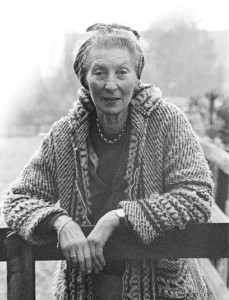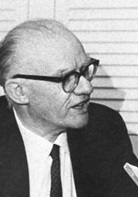Related Research Articles

Radio drama is a dramatized, purely acoustic performance. With no visual component, radio drama depends on dialogue, music and sound effects to help the listener imagine the characters and story: "It is auditory in the physical dimension but equally powerful as a visual force in the psychological dimension." Radio drama includes plays specifically written for radio, docudrama, dramatized works of fiction, as well as plays originally written for the theatre, including musical theatre, and opera.

The BBC Third Programme was a national radio station produced and broadcast from 1946 until 1967, when it was replaced by Radio 3. It first went on the air on 29 September 1946 and quickly became one of the leading cultural and intellectual forces in Britain, playing a crucial role in disseminating the arts. It was the BBC's third national radio network, the other two being the Home Service and the Light Programme, principally devoted to light entertainment and music.
Albert Eric Maschwitz OBE, sometimes credited as Holt Marvell, was an English entertainer, writer, editor, broadcaster and broadcasting executive.
Walter Goehr was a German composer and conductor.

Frederick Louis MacNeice was an Irish poet and playwright, and a member of the Auden Group, which also included W. H. Auden, Stephen Spender and Cecil Day-Lewis. MacNeice's body of work was widely appreciated by the public during his lifetime, due in part to his relaxed but socially and emotionally aware style. Never as overtly or simplistically political as some of his contemporaries, he expressed a humane opposition to totalitarianism as well as an acute awareness of his roots.
Terence Rogers Tiller was an English poet and radio producer.
William Robert Rodgers, known as Bertie, and born in Belfast, Northern Ireland, was probably best known as a poet, but was also a prose essayist, a book reviewer, a radio broadcaster and script writer, a lecturer and, latterly, a teacher, as well as a former Presbyterian minister.
Earplay was the longest-running of the formal series of radio drama anthologies on National Public Radio, produced by WHA in Madison, Wisconsin and heard from 1972 into the 1990s. It approached radio drama as an art form with scripts written by such leading playwrights as Edward Albee, Arthur Kopit, Archibald MacLeish and David Mamet.
Derek Ivor Breashur McCulloch OBE was a BBC Radio producer and presenter. He became known as "Uncle Mac" on Children's Hour and Children's Favourites and provided the voice of "Larry the Lamb" in Toytown. He was the head of children's broadcasting for the BBC from 1933 until 1951.

The BBC Forces Programme was a national radio station which operated from 7 January 1940 until 26 February 1944.

Elizabeth Poston was an English composer, pianist and writer.
Thomas Douglas James Cleverdon was an English radio producer and bookseller. In both fields he was associated with numerous leading cultural figures.
The Radio Éireann Players (RÉP) were a repertory company for radio in Ireland, formed in 1947, which performed in regular drama productions for Irish broadcaster, Radio Éireann. After the depredations of the war-time years and a devastating fire in the Abbey Theatre in 1951, the Radio Éireann Players' powerful weekly performances inspired interest in drama throughout the country. Their effect has been compared to an effort at national re-invention, in the same way that the national theatre fifty years earlier had been an attempt to redefine Irish identity.
Denis Mitchell was a British documentary filmmaker, renowned for his innovative radio and television documentaries. His radio and television career can broadly be characterised by the constant interest Mitchell displayed in "giving voice to the voiceless" and in the rhythms and prosody of everyday vernacular speech.
Reginald Donald Smith was a teacher and lecturer, BBC radio producer, possible communist spy and model for the character of Guy Pringle in the novel sequence Fortunes of War written by his wife, Olivia Manning.
Douglas Geoffrey Bridson, commonly known as D. G. Bridson, was a radio producer and author who became the "cultural boss of the BBC".
Sam Hanna Bell was a Scottish-born Northern Irish novelist, short story writer, playwright, and broadcaster.
Vivienne Chatterton was a British singer and noted radio actress of the 20th-century.

Philip Henry Burton, MBE was a Welsh teacher who became an acclaimed radio producer and theatre director. In his later life, he emigrated to the United States where he helped found the American Musical and Dramatic Academy in New York City. Despite Burton's successes in many fields, it is for his role in helping Richard Burton to pursue his career as an actor, that he is best remembered.
The Dark Tower is a 1946 BBC Home Service radio play written, in verse, and produced by Louis MacNeice, with music composed for it by Benjamin Britten. Dramatist and author Robin Brooks, writing in The Guardian in 2017, called it "a landmark in radio drama".
References
- ↑ Thomas, Jeanette (2004). "Laurence Duval Gilliam". Oxford Dictionary of National Biography. Oxford Dictionary of National Biography (online ed.). Oxford University Press. doi:10.1093/ref:odnb/40890. ISBN 978-0-19-861411-1 . Retrieved 2 May 2011.(Subscription or UK public library membership required.)
- ↑ Cleverdon, T. D. (26 February 1970). Radio Features And Drama At The BBC. TLS.
- ↑ Hawkins, D. (1946). BBC War Report.
- ↑ Coulton, B. (1980). Louis MacNeice In The BBC . ISBN 9780571115372.
- ↑ Briggs, A. (1961). The History Of Broadcasting In The United Kingdom .